We know how Alexander Litvinenko died, but how did he live?
Mary Dejevsky looks back on the life of the former KGB and FSB officer who dared to stand up to Vladimir Putin - and paid the ultimate price
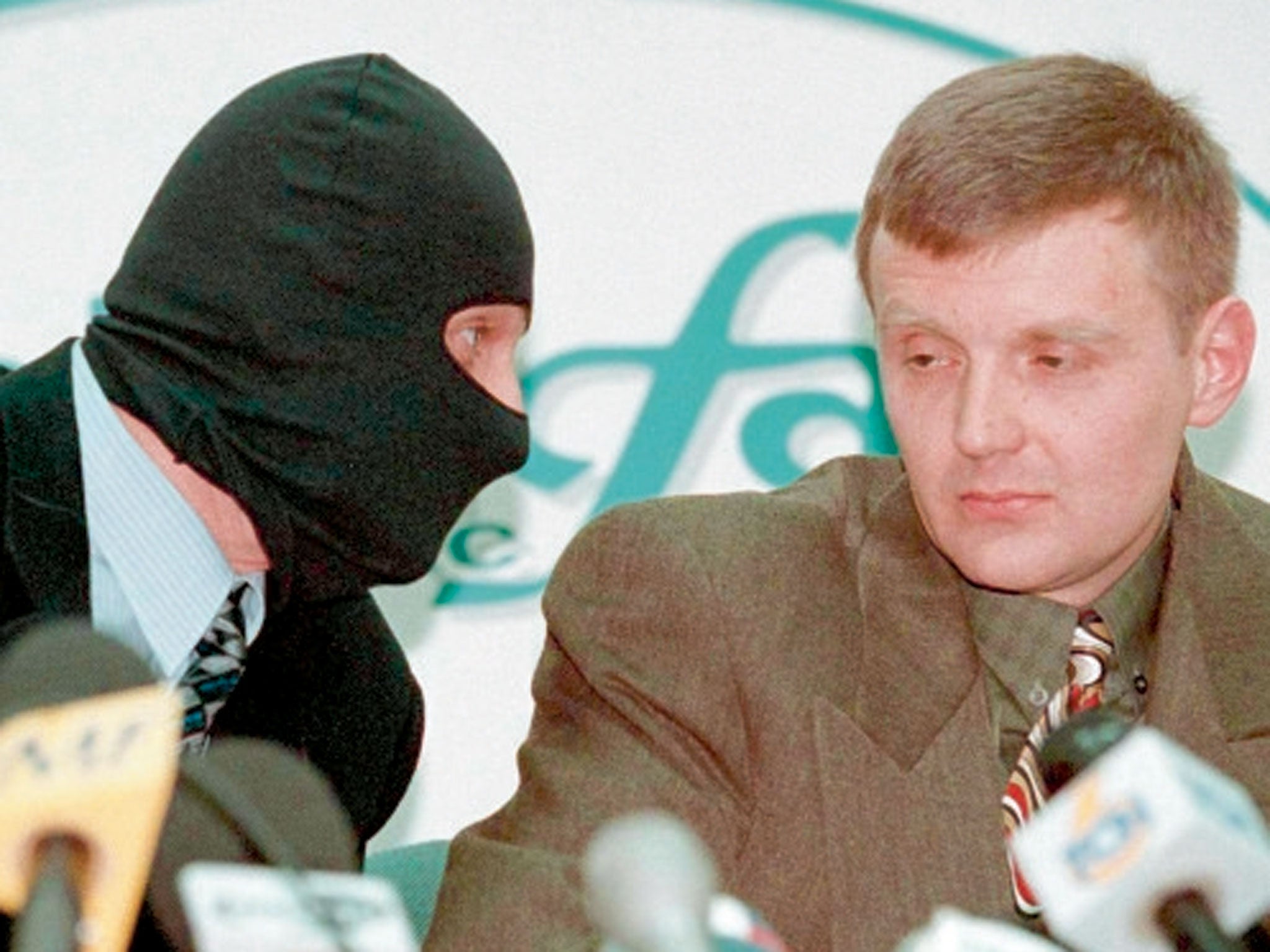
It was the evening of 19 October 2006, in London. A typically untidy, but unusually subdued, crowd of media people had crammed into the top-floor meeting room of the Frontline Club, a journalists' hang-out near London's Paddington station. The club had been founded with foreign correspondents in mind, hence its location, just a hop, skip and a jump from Heathrow, and the gathering that Thursday was to commemorate a Russian journalist and fierce critic of President Vladimir Putin, Anna Politkovskaya, who had been gunned down outside her Moscow flat less than two weeks before.
The widespread assumption was that Politkovskaya had been murdered, if not on Putin's direct orders, then to please him. The attack bore all the hallmarks of a contract killing and it took place on the Russian president's birthday. The meeting in her memory was always going to turn political. But no one could have predicted how soon and to what degree.
After readings from Politkovskaya's work, in Russian and in English, tributes from colleagues, and a host of vivid memories, the time came for contributions from the floor. A couple of questions in, someone in the middle rows was called, and the microphone was passed along.
There was a bit of shuffling. The speaker stood up, ramrod straight, and began, a little nervously, in accented English: "My name is Alexander Litvinenko and I am a former KGB and FSB officer." The room fell completely silent. The speaker then apologised for his English and asked to speak through the interpreter who was on the platform.
"I think that because I'm here, I should really speak up and say what I know. I don't want to hide anything, and I am quite happy for the media to cover this. Somebody has asked me directly: who is guilty of Anna's death? I'll give you a straight answer: it is Mr Putin, the President of the Russian Federation."
He recounted his friendship with Politkovskaya, a welcome visitor to his home in London, and the sympathy they shared for the cause of Chechens, fighting for independence from Russia. He said he knew for a fact that she had received death threats from the Kremlin, and went on: "I well know that journalists of the stature of Anna Politkovskaya can only be killed by one person, and that is Putin. No one else."
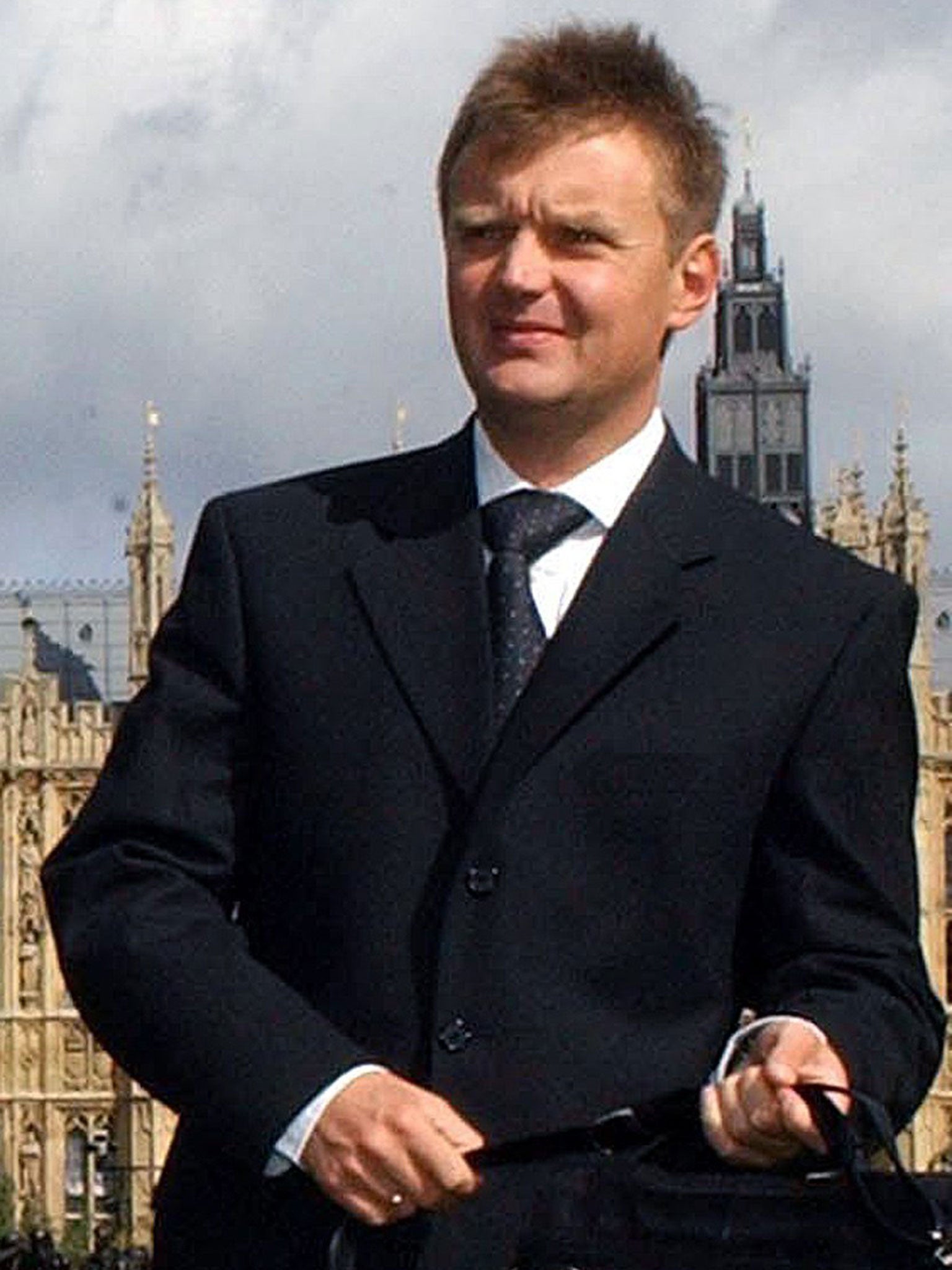
At the meeting's close, Litvinenko was mobbed by curious reporters who pressed him about who he was and why he was there. His was not a familiar name or face; some even suspected he might be a plant. Pale, slightly pudgy, with a light, trimmed moustache, he came across as a little evasive, but at once utterly certain.
No one really knew what to make of him, but his démarche was mostly dismissed as a bizarrely Russian one-off. How wrong that was.
Only a couple of weeks later came the first reports that a Russian exile was seriously ill in hospital, with suspected poisoning. He was named as Alexander Litvinenko. It turned out he was one of the group of Russian émigrés who had clustered around the exiled oligarch, Boris Berezovsky. The magnate's expensive public relations machine went into overdrive.
On 21 November, Alex Goldfarb, an émigré Russian microbiologist turned activist – someone as fluent as Litvinenko was tongue-tied – summoned journalists to the entrance of University College Hospital in central London. He introduced himself as a friend of the family and presented the ghoulish picture that was to become Litvinenko's epitaph.
Two days later came the announcement that Litvinenko had died. Within hours, Goldfarb was back outside UCH, reading the statement that Litvinenko had signed in his final conscious hours. It began by thanking hospital staff, the British police, the UK Government for granting him citizenship, the British public for their support, and his wife. It sounded rather like the statement given by the victor in British elections.
But then it went on: "As I lie here I can distinctly hear the beating of wings of the angel of death … I think, therefore, that this may be the time to say one or two things to the person responsible for my present condition. You may succeed in silencing one man but the howl of protest from around the world will reverberate, Mr Putin, in your ears for the rest of your life. May God forgive you for what you have done, not only to me but to beloved Russia and its people."
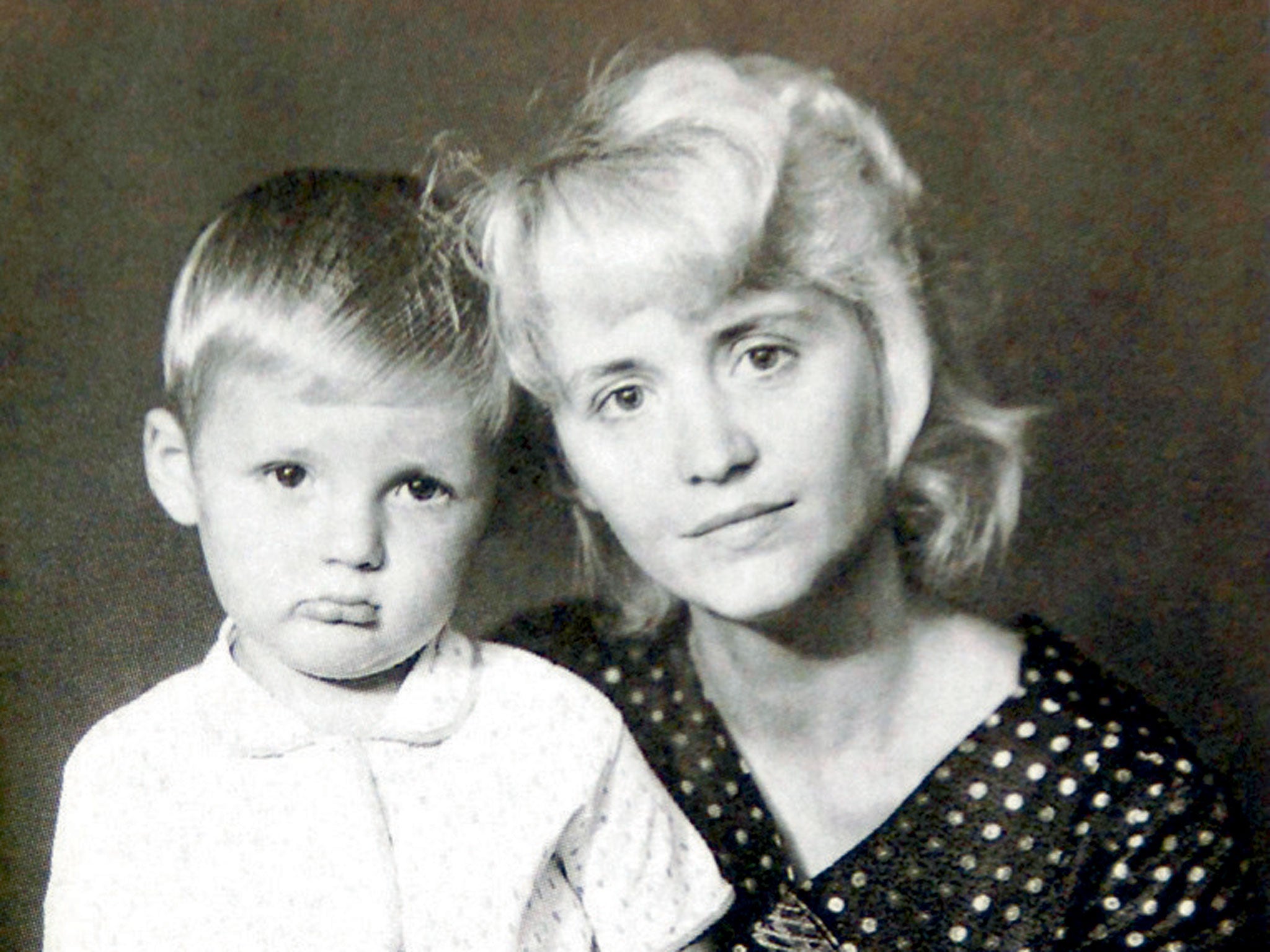
If the words sounded somewhat florid for the blunt Litvinenko, that was true. It was mostly the work of George Menzies, the solicitor who had advised on the family's asylum claim. Goldfarb had translated it orally for Litvinenko, who then signed it. Menzies said he believed it to be genuine reflection of Litvinenko's state of mind, but he became worried about defamation and refused to take the statement to the hospital himself.
The post-mortem gave the cause of death as acute radiation syndrome, from polonium 210, a substance that few outside the immediate scientific community had then even heard of.
Last month, nine years and two months from that day, a retired High Court judge, Sir Robert Owen, delivered his report, following a seven-month public inquiry. It found that Litvinenko had been murdered, and named Andrei Lugovoi and Dmitry Kovtun, the two Russians already indicted, as the assassins. The report also concluded that there was a "strong probability" that the killing had been organised by the FSB (the Russian state security organisation), and a "probability" that the head of that service and President Putin had both given their approval.
The inquiry, for which Litvinenko's widow, Marina, had fought so long and hard, had given its verdict and found that, at some level, the Russian state was culpable. The Home Secretary made a bellicose statement in the House of Commons; the Russians offered angry denials and ridicule – and then? Well, nothing. So ended the Litvinenko affair.
It has not ended, of course, for Marina, or for their son Anatoly, now 21 and a student at University College London. There may be lawsuits to follow, claims against Russian institutions, perhaps, or the presumed culprits. More to the point, though, there are the memories – personal and political – of a man who inhabited, as it turned out, several different worlds, but remained almost unknown in his adopted country until he died.
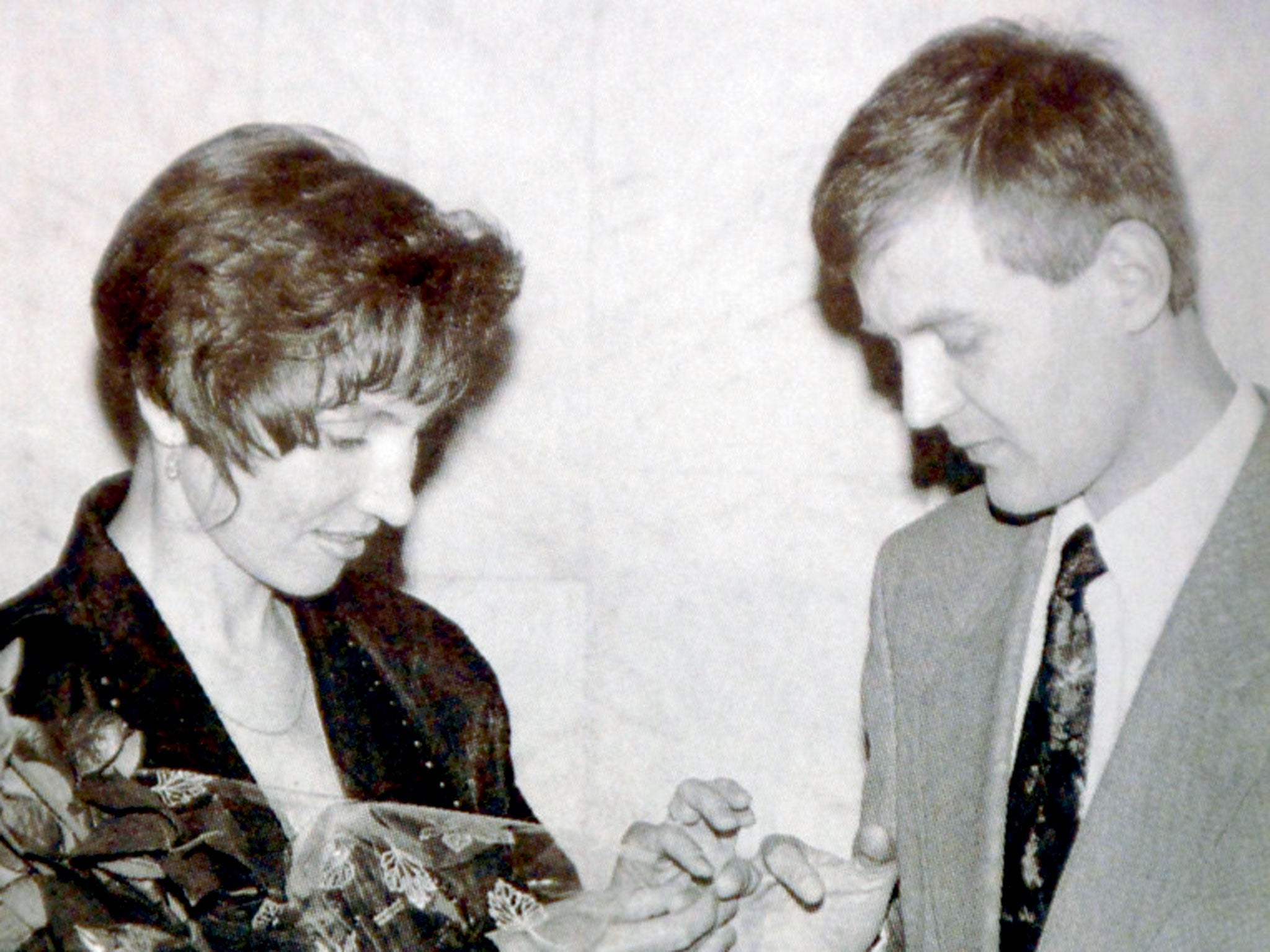
Until that evening at the Frontline Club, Litvinenko had been enjoying a quiet family life, socialising within a small circle of Russian exiles in London, and trying to navigate a land not at all like the one where he had spent his previous life. By putting his head above the parapet as he did, it seemed he was deliberately entering another, more public, stage in his British life. Whether that exposed him to greater risk, however, is another matter. His fate may have already been sealed long before.
For while Litvinenko might not have been a public figure in the UK, in Russia – especially in the security services where he had made his career – he was notorious. So despised had be become that his photograph was used for target practice in one of the units – the Vityaz – where he had served.
Born in 1962, he began his career as an officer in the Interior Ministry forces, based in the area of southern Russia where he grew up. In 1991, he was transferred to Moscow, as an officer in the FSB, the successor to the Soviet-era KGB. After a spell in counter-terrorism – an experience that gave him an understanding > of the Chechen cause uncommon for Russians – he was assigned to a top-secret project tackling organised crime.
The 1990s was the decade of the "Wild East", when fortunes were won as casually as lives were lost, and it was boom-time for the security business, however defined. Litvinenko's job prospects were excellent.
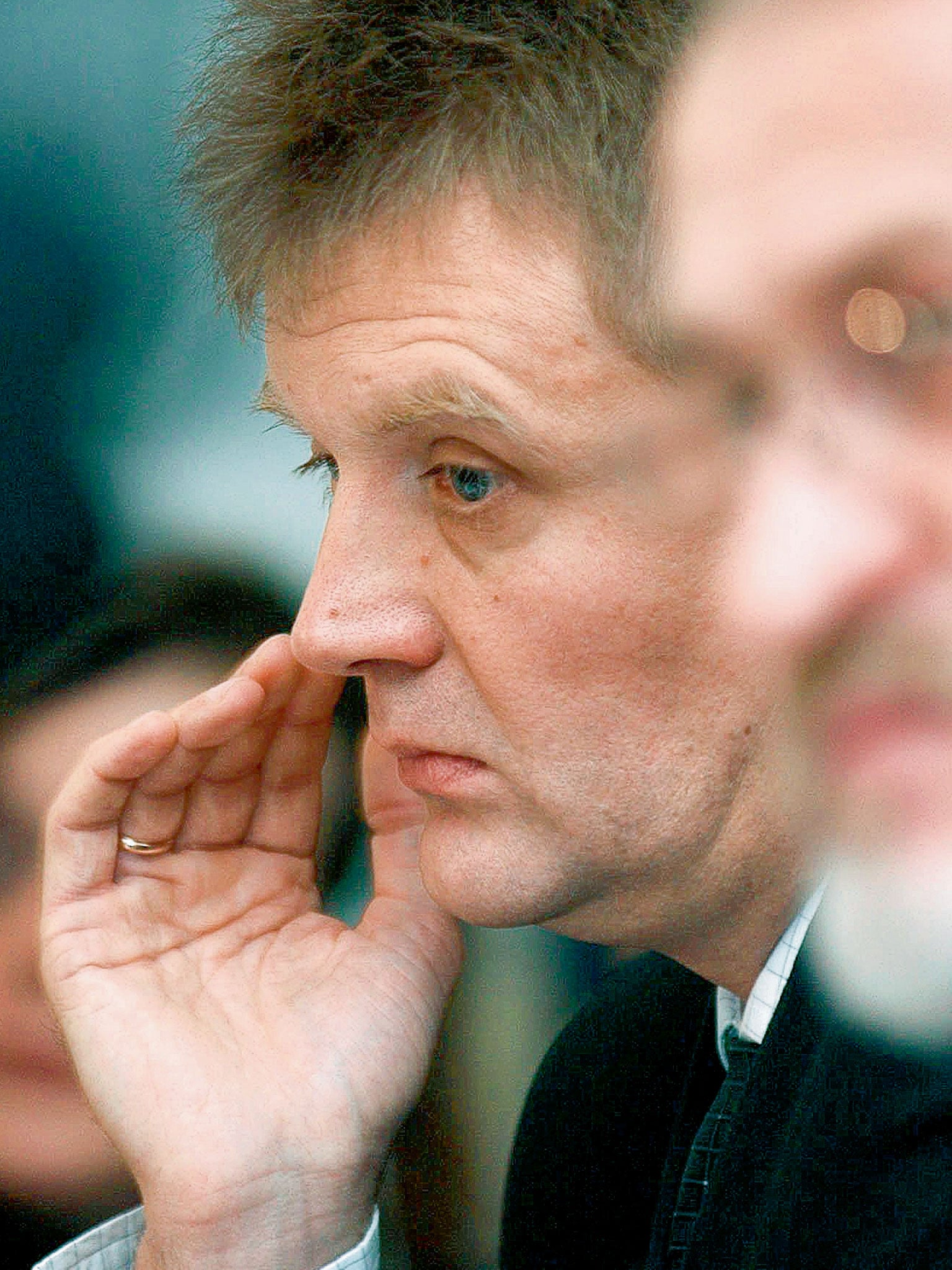
As an officer, he was seen as meticulous and principled, if too cautious for his more gung-ho colleagues. As he told it, though, he was becoming increasingly exercised by the links he was uncovering between major gangsters and those in power – not just in the government, but at the very heart of the FSB.
In early 1998, Litvinenko and some fellow officers lodged an official complaint. By June, the FSB head had been replaced, raising hopes that a new broom would sweep clean. But the new chief – making a brief stopover on his way to becoming prime minister, then president – was Vladimir Putin, and Litvinenko took an instant dislike to him. "Putin looked not like an FSB director, but a person who played the director," he said after meeting him, and the feeling – if Litvinenko figured in Putin's universe at that time – was mutual. For Putin, loyalty and honour meant not rocking any boats.
Still, dogged as ever, Litvinenko persevered. That November, he took a starring role in a press conference staged by FSB officers demanding a clean-up in their service. The occasion was without precedent in Russia and, while others on the platform wore balaclavas, Litvinenko – typically – declined to hide, evincing the same mixture of naivety and confidence in his own rectitude which marked him out and ultimately proved his undoing.
Not that Litvinenko believed his gamble to be as foolhardy as it now looks. He had the backing of Boris Berezovsky, who was then riding high. Close to the then president, Boris Yeltsin, Berezovsky was the quintessential – some say the original – Russian oligarch, who had profited mightily from the chaotic business climate of the early 1990s and exerted political influence through his broadcasting empire.
It was his television station, ORT, that broadcast the dissident officers' press conference. But while the call for a clean-up was for Litvinenko above all a personal and patriotic crusade, for Berezovsky it was part of a bigger political struggle for ascendancy in Russia when Yeltsin bowed out.
The dynamics of power in Russia, though, were already shifting, and after Putin came to power at the turn of the millennium, both Berezovsky and Litvinenko soon found themselves in trouble. By the summer of 2000, Berezovsky had fled to London via France, and was using his new perch to denounce Putin from afar. Litvinenko, for his part, had stood trial on a trumped-up charge of assault, been acquitted, and was on bail, awaiting a new trial for an equally fabricated charge of theft.
When he ascertained that his chances of re-establishing his career, and even staying out of prison, were effectively zero, he set about leaving the country. And he did this in his typically determined and methodical way, though it wasn't easy.
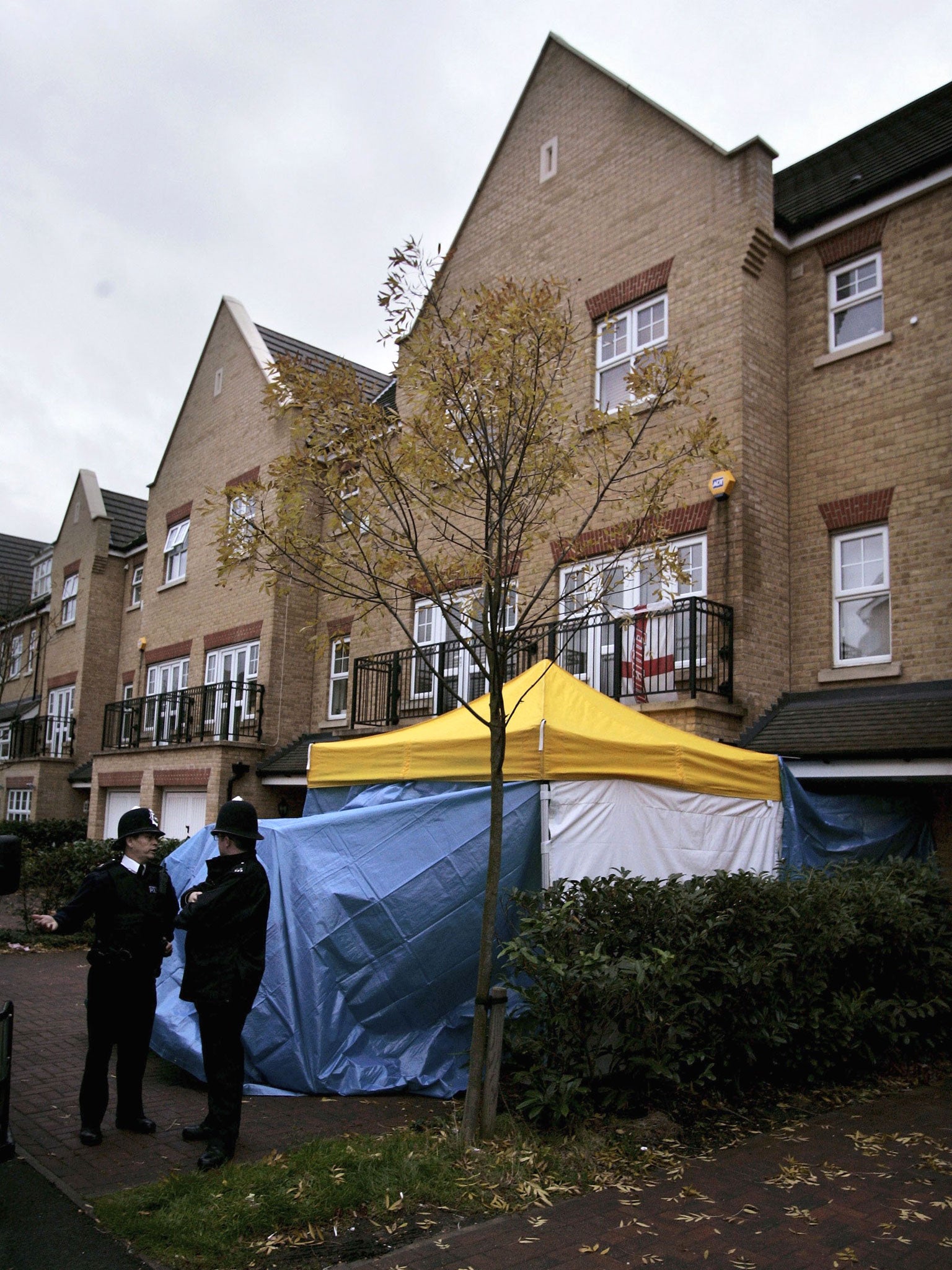
Psychologically, it would be a wrench. His early life had done much to form him as a staunch Russian patriot. He was born and spent his early years in Voronezh, a drab, million-strong city to the south of Moscow, which prided itself on having been the last front in the Second World War before Stalingrad. After his parents split up, he moved to Nalchik, a frontier town bordering the troubled Caucasus regions of North Ossetia and Chechnya. It was here, having failed to get into university, that he trained for the military.
The difficulty was not just psychological, but practical. In 1993, he had met Marina, through an acquaintance of hers who was taking his advice in a blackmail case. Both of them were emerging from other relationships, and both said it was love at first sight. By now they were married, with a 6-year-old son, Anatoly.
Help came from Berezovsky, who appears to have blamed himself for Litvinenko's difficulties with the Kremlin – as well he might have done. Not only had the oligarch underwritten the FSB officers' failed rebellion, but Litvinenko had got himself into still deeper trouble with his bosses when he tipped Berezovsky off about an FSB plan to kill him, so allowing him to escape.
For the Litvinenkos there followed a zig-zag journey across Europe. Alexander crossed from southern Russia into Georgia and travelled from there to Turkey on a false passport. Marina, on his instructions, took Anatoly on a package holiday to Spain, from where they were flown to Turkey on Berezovsky's private plane. After being refused asylum by the US embassy in Ankara, they took a helter-skelter car journey to Istanbul, and bought plane tickets back to Georgia, crucially via London. At Heathrow, Litvinenko approached the first policeman he saw and said: "I am a former officer in the FSB and I am asking for asylum."
Berezovsky maintained his support. For two years, he accommodated the family in a flat in Kensington. They then moved to a house, 140 Osier Crescent in the London suburb of Muswell Hill, where they paid the running costs, but no more. Berezovsky also paid Litvinenko a £5,000 monthly stipend, for which he worked on a number of research and book projects, and his charity funded Anatoly's private school fees.
Life at Osier Crescent, an anonymous, very English type of street, was congenial, if somewhat isolated. Russian friends would stay from time to time, and those down on their luck might stay longer. One, in particular, Vera, pretty much settled in as housekeeper. Akhmed Zakayev – the exiled leader of Chechnya – was also on Berezovsky's books and lived practically around the corner. The two families became friends, able to drop in on each other unannounced. Zakayev would offer Litvinenko lifts into central London when he was going, and Litvinenko increasingly published his (anti-Putin and pro-Chechen) writings on Zakayev's Chechenpress website.
When Litvinenko, on his deathbed, requested a funeral according to the Islamic rite, this was seen as a reflection of his esteem for Zakayev and an expression of solidarity with the Chechens. To facilitate his request, Zakayev brought an imam into the hospital, and Litvinenko became a Muslim.
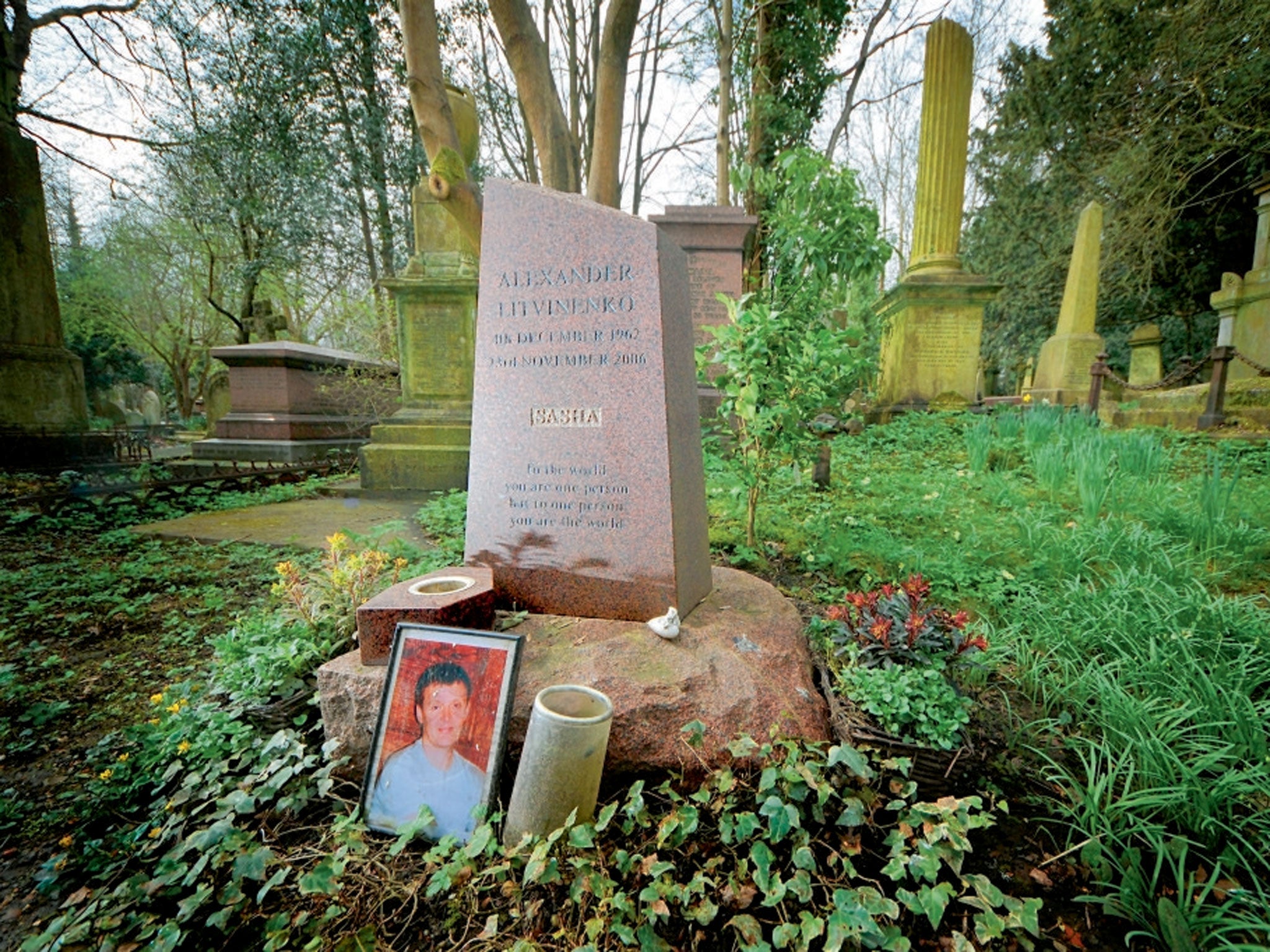
But there were also unwelcome guests at Osier Crescent. In 2002, an envoy purporting to be from the Russian embassy, called so often that it amounted to harassment – an intrusion halted only by a solicitor's letter. In 2004, there was a fire-bomb attack on both the Zakayevs' and the Litvinenkos' houses, thought to be linked to a Chechen feud and a debt Berezovsky supposedly owed.
The menage ran on traditional lines. Litvinenko was not particularly domesticated, though he would cook his signature chicken dish for special occasions – the bird impaled on a bottle of beer and baked. Marina gave lessons in dance, as she had done in Russia, and Russian, but nothing that would seriously meet London bills.
The Litvinenkos had been granted asylum in May 2001, and taken the English surname Carter. Alexander became Edwin Redwald; Marina, Marie Anne; and Anatoly, Anthony. But behind their front door they lived largely Russian lives. Alexander tried to treat his homesickness by watching old Russian films on video and dropping in on a business contact with whom he could chat in Russian.
While they both took lessons, Marina's English improved faster than his. His lack of fluency limited not just his socialising, but his professional prospects beyond Berezovsky's protective umbrella.
In the half year before his death, it appeared that he was edging away from Berezovsky's patronage. His stipend was reduced to £2,000 – which sowed some discord between them. Some witnesses to the inquiry said he had been upset; others that he had "blown up" and at once calmed down; yet others that there had been a rift, but not about money.
By 2005, Litvinenko had completed two books for Berezovsky. The first, Blowing up Russia, argued that a series of bombings across Russia, which cost more than 300 lives in September 1999, had been carried out not – as officially stated – by Chechen terrorists, but by the FSB to give Putin a pretext for restarting the war.
Litvinenko was also providing information to the controversial Mitrokhin commission in Italy, which was looking into the alleged KGB ties of Italian politicians, and helping Spain investigate Russian organised crime.
But he needed more work, and was not well equipped to find it. His English was still poor. His Russian contacts and information were growing stale, and he lacked the social polish to circulate in top-flight Western business. His professional milieu seems to have been a constellation of second-tier, sometimes borderline shady, security companies, many staffed by ex-military and ex-intelligence personnel, and all chasing the same clients. The Mayfair addresses were fancy; the offices less so.
From 2003 or thereabouts, as is now known, Litvinenko also served another master. Though this was neither confirmed nor denied officially (a formula quaintly abbreviated as NCND in the official documents), Marina testified that her husband received £2,000 a month from British intelligence, probably MI6. She said he was a consultant rather than an employee or agent, which is how she preferred it, though he, she thought, hankered after something more like James Bond. He would meet a handler called "Martin", in the basement café of Waterstones in Piccadilly, next to the Itsu sushi bar where he sometimes lunched.
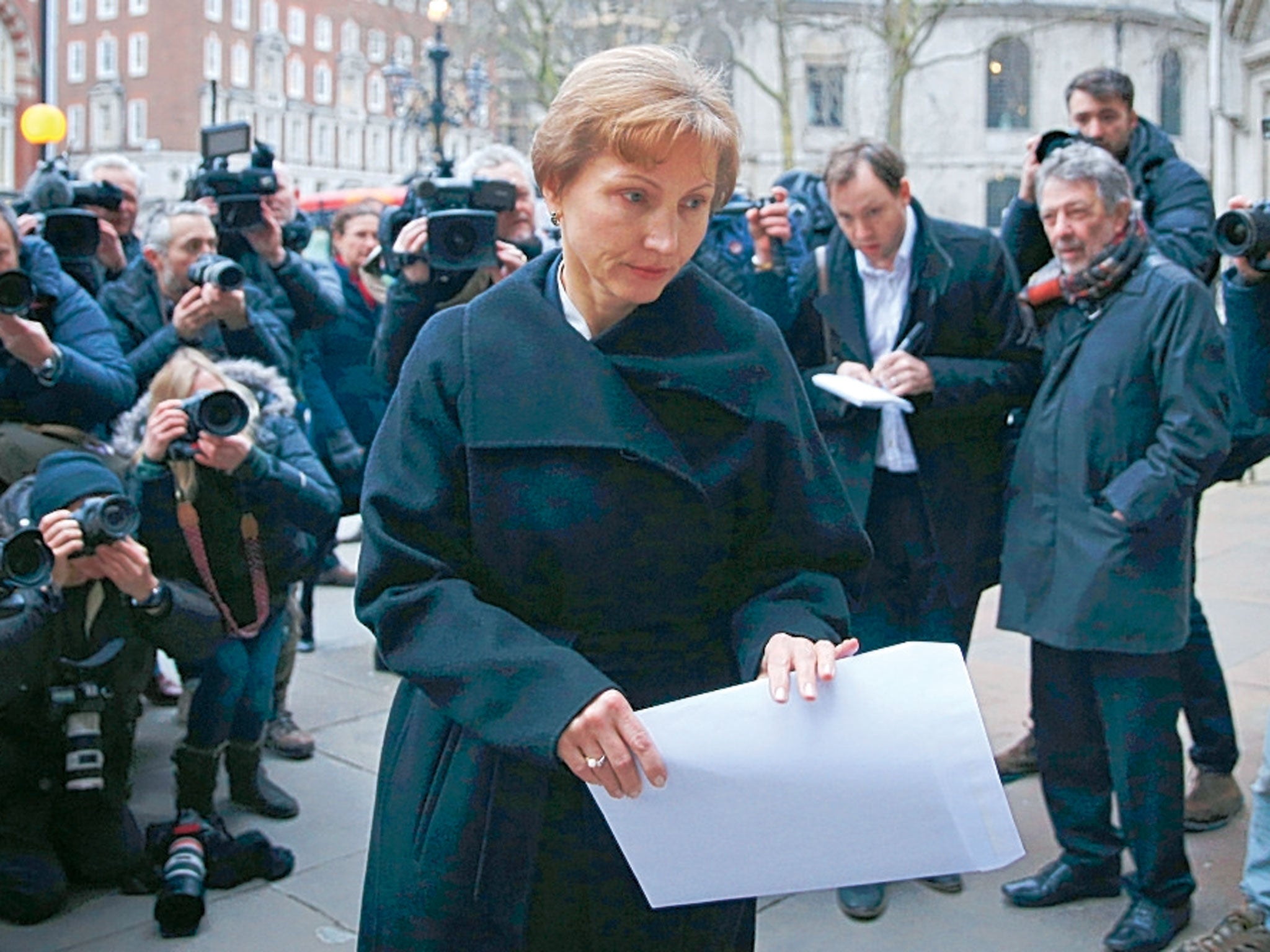
What Litvinenko actually did for British intelligence may never be known. The inquiry heard glancing testimony to passports in several names, to travels not just to Spain and Italy, and one of the accused assassins, Andrei Lugovoi, claims that Litvinenko had the task of recruiting him – for his inside knowledge of the Kremlin. This claim was also NCND.
However he spent his time, though, the picture that emerges of Alexander Litvinenko is remarkably consistent, through all the vicissitudes of his life. He had a fierce sense of professional pride. Well aware of the danger he was courting by joining Berezovsky's cause, he forecast that the greatest threat to his life might come via trusted individuals from his past. When he realised that he had been poisoned, probably fatally and probably by an old acquaintance, Lugovoi, his chief response, so said his friend Zakayev, was embarrassment that he had fallen for such a hoary trick.
He was honourable and loyal to a fault – to Marina and to his service. As he saw it, it was not he who betrayed the FSB but the FSB that betrayed him, along with all honourable officers intent on rooting out the corruption undermining the Russian state.
Litvinenko appears to have served his new country with the same stolid and single-minded loyalty as he had Russia. The inquiry learned that he hung out a St George's flag from his balcony during the World Cup. Obtaining British citizenship, at a ceremony in Haringey Civic Centre, was a highlight. A business associate said: "He ran in one day when he was given his British passport, he just absolutely ran in, and threw it down on the desk … He was delighted, he was over the moon, he was ecstatic."
But there was another aspect to his new status. Yuri Felshtinsky, the co-author of Blowing Up Russia, remembered Litvinenko telling him: "I just received my citizenship. Now they will not be able to touch me." Still more poignantly, another friend, the Soviet-era human rights campaigner, Vladimir Bukovsky, said Litvinenko had asked him: "It makes me more secure, doesn't it, it protects me?" Bukovsky's response was as sober as it was prophetic: "I had to smile and say: well not much, not really."
Litvinenko was buried in a lead coffin at Highgate cemetery, his grave close to that of an even better-known dissident exile, Karl Marx. He had been a British national for just 41 days.
Join our commenting forum
Join thought-provoking conversations, follow other Independent readers and see their replies
Comments
Bookmark popover
Removed from bookmarks